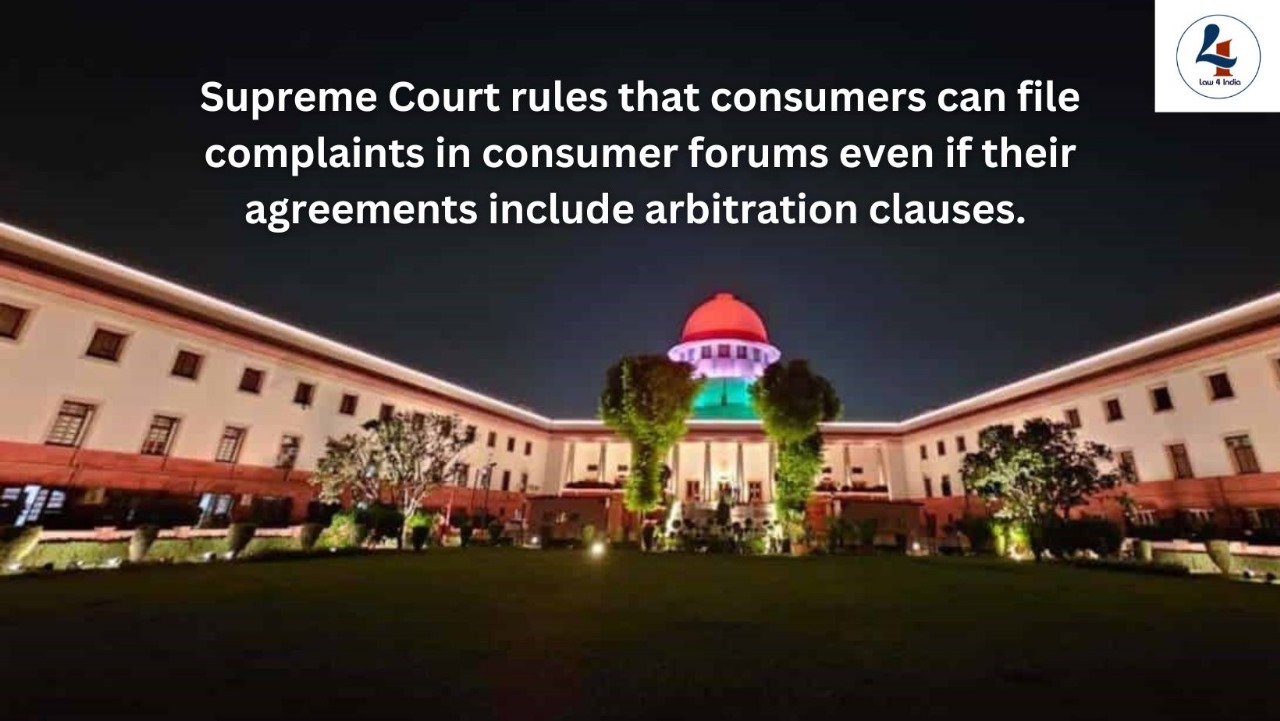By- Govind Singh Kushwaha
In a significant ruling by a bench comprising of Justice Sudhanshu Dhulia and Justice Ahsanuddin Amanullah, The Supreme Court of India has reaffirmed that the arbitration clauses in agreements do not take away a consumer’s right to redress through the provisions mentioned under the consumer protection act, 2019.
The court reiterated that consumers cannot be compelled to resolve disputes solely through arbitration because such a clause exists in a contract.
The verdict upholds that the principles of Consumer Protection Act are meant to safeguards the rights of individuals who has availed of the goods or services mentioned under the said Act. The court stated that arbitration remains an option, but the final choice resorts with the consumer – whether he opts for arbitration or approach the Consumer court.
The ruling strengthens consumer rights and ensures that companies cannot force arbitration as the only option for consumers for dispute resolution rather the option remains with the consumer
Facts:
The complainant before the NCDRC had purchased the disputed flat on a loan of Rs. 17.64 lakh from the ICICI Bank and he agreed to sell the property for Rs. 32 Lakh. The buyer secured a loan of Rs. 23.40 lakh from Citicorp finance, The buyer Mubarak Vahid Patel requested Rs.17.80 lakh to be directly transferred to ICICI Bank to clear the said mortgage.
The consumer approached the National Consumer Disputes Redressal Commission (NCDRC), Claiming that a tripartite agreement existed between them and the borrower, under which Citicorp Finance was obliged to deposit the entire sale consideration of Rs. 32 Lakh.
The NCDRC ruled in favour of the respondent, directing Citicorp Finance to refund Rs. 13 lakh with interest and pay Rs. 1 lakh as litigation costs.
Later, the judgement of the NCDRC was challenged in the Supreme Court. As the appellant contended that the agreement had the clause that specifically demanded arbitration as the source of redressal.
However, the Supreme Court, referring to:
M. Hemalatha Devi v. B. Udaysri (2024), The Supreme Court reiterated that consumer disputes are non-arbitratable unless the consumer voluntarily opts for arbitration.
The Court emphasised that under the CPA,2019 the arbitration cannot be imposed upon a consumer against their will, as the act is welfare legislation designed to protect consumer interests Citing the case of Emaar MGF Land Ltd v. Aftab Singh (2019), the court observed: “Even in a consumer dispute, arbitration can only be opted for at the exclusive choice of the consumer. The service provider cannot enforce arbitration unilaterally”
Since the existence of the Tripartite Agreement was itself was in dispute so the Supreme Court Ruled in favour of the consumer and upheld the NCDRC’s decision to award compensation.
Govind Singh Kushwaha is a passionate 2nd year law student at Faculty of Law, Delhi University

